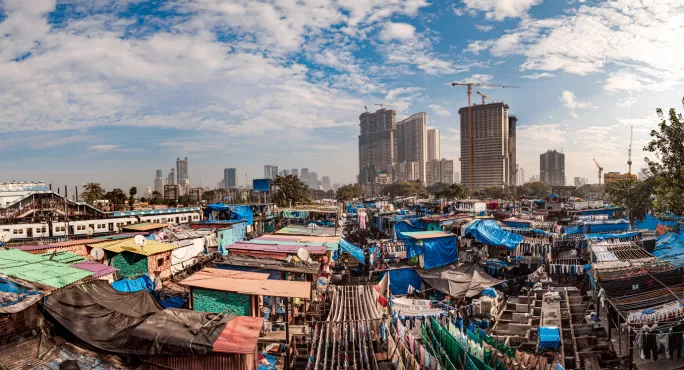- Home
- Teaching & Learning
- Secondary
- How we can decolonise geography in schools
How we can decolonise geography in schools

The rising popularity of geography as an academic discipline came hand-in-hand with the rise in colonialism. Geographical tools such as shipbuilding, navigation and cartography were hugely important to the expansion of the British Empire.
Geography has traditionally been taught through a Eurocentric, Western lens, often failing to explore the voices of communities and peoples that have been excluded and marginalised, especially women and indigenous communities.
Some progress is being made; for example, through the work of Gapminder, which was founded by the late Hans Rosling, and works to identify and address the worst global misconceptions. However, a lot more needs to be done to decolonise elements of the geography courses run in Scottish schools and we need the exam board to collaborate in this.
Listen: ‘Use the school curriculum to tackle racism’
Opinion: ‘Anti-racist action must involve curriculum reform’
News: Petition calls for Afro-Scottish history in the curriculum
Diversity: BAME people ‘woefully underrepresented’ in schools
Archive interview: Anti-racism educator Jane Elliott
A good place to start would be with the use of some terminology.
Decolonising geography
The use of the dichotomy “developed” and “developing” in order to contextualise the world is both unhelpful and untrue. It invites young people to create generalised assumptions of other locations and fails to allow them to explore unique geographies, as well as their interrelations and interdependency. However, both terms, despite being very broad in nature, have been used extensively in geography past papers here in Scotland throughout the years, and, therefore, students are obliged to learn them as “required knowledge” to pass exams.
Another term I find offensive, and not useful, is “slum”. It is a negative word, which is not fair to the often wonderful people living and working in these communities. Having visited and spent time in impoverished communities in my native country, India, I believe we should view them as more a community of diverse peoples, many of whom are intelligent and hard-working - but “slum” does not really allow for that. There is often a strong sense of solidarity and community in these localities, and this should be taught, too.
I mention this because very recently, the term “slum” was used in a geography exam paper. Change needs to happen. Moving away from backward terms such as “tribe” and “slum” and instead referring to them as the names in their own unique dialect or language, such as the “Xikrin people” and “favela” makes more sense, geographically, educationally and ethically.
Another issue is that students are often asked to explain population pyramids of different countries. They are awarded marks for sweeping reasons for the changing birth and death rates, such as “good healthcare”. The problem is that they are invited to formulate generic reasons for changing demographics and then apply these generalised reasons to diverse countries. The reasons why one country has a high life expectancy can be markedly different from another country’s set of reasons.
Decolonising geography means untangling global power structures and, in the process, providing autonomy to peripheral voices. As an educator, I am fascinated by epistemology, the pursuit of what is true, and how knowledge is accumulated and contextualised. It is important to open reasoning beyond Eurocentric parameters and pay attention to the different realities through culturally and historically specific epistemologies.
If students are taught about geography through models and categorisation (cause, effect and response), they should also be taught about the flaws in using such techniques. Students should be taught how to critique and evaluate models, maps and theories from a young age.
Teachers need to teach topics that allow students to learn about the experiences of the colonised, deconstructing and critiquing colonial power structures and discourse. This can happen through the correct case studies, rather than through broad, unhelpful generalisations about human landscapes.
Finally, we need a more culturally diverse teaching workforce in promoted posts, leading the subject. There is a lack of diversity of role models and senior leaders in the teaching profession in general, and within geography education in particular. Many black, Asian and minority ethnic students, especially those from disadvantaged backgrounds, lack teachers they can identify with and look up to in the classroom.
Both diversity and a global outlook lie at the very essence of geography. This is even more important in contemporary times as we witness racist offences, white supremacy and far-right, xenophobic politics increasing.
Geography teachers, then, should ask themselves three questions before designing and/or teaching about a new location to students:
- Are the different elements of this location meaningfully communicated?
- How balanced is my view of the location I am trying to present? For example, are both the problems and positive aspects taught?
- What are my own views of this location?
Shiv Das is a geography teacher at Boroughmuir High School, in Edinburgh. He tweets @shiv_teaching
You need a Tes subscription to read this article
Subscribe now to read this article and get other subscriber-only content:
- Unlimited access to all Tes magazine content
- Exclusive subscriber-only stories
- Award-winning email newsletters
Already a subscriber? Log in
You need a subscription to read this article
Subscribe now to read this article and get other subscriber-only content, including:
- Unlimited access to all Tes magazine content
- Exclusive subscriber-only stories
- Award-winning email newsletters
topics in this article



